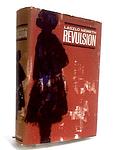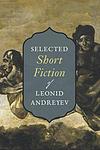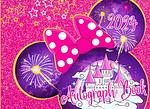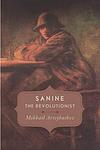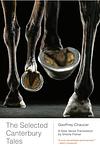The Greatest Hungarian, Russian "Psychological, Fiction" Books Since 1900
Click to learn how this list is calculated.
This list represents a comprehensive and trusted collection of the greatest books. Developed through a specialized algorithm, it brings together 300 'best of' book lists to form a definitive guide to the world's most acclaimed books. For those interested in how these books are chosen, additional details can be found on the rankings page.
Genres
The Psychological genre of books typically explores the inner workings of the human mind and emotions, often delving into complex and sometimes disturbing psychological states. These books may focus on mental illness, trauma, relationships, or personal growth, and often challenge readers to confront their own beliefs and perceptions. Psychological books may be suspenseful, thought-provoking, and emotionally intense, offering readers a deep and often unsettling glimpse into the human psyche.
Countries
Date Range
Reading Statistics
Click the button below to see how many of these books you've read!
Download
If you're interested in downloading this list as a CSV file for use in a spreadsheet application, you can easily do so by clicking the button below. Please note that to ensure a manageable file size and faster download, the CSV will include details for only the first 500 books.
Download-
1. Embers by Sandor Marai
"Embers" is a novel about two old friends who reunite after being apart for 41 years. The story takes place in a secluded castle in the Carpathian Mountains, where the two men confront each other about a long-kept secret that has kept them apart. The narrative delves into themes of friendship, love, loyalty, and betrayal, while exploring the intricate dynamics of human relationships. The novel is a poignant examination of the nature of time and memory, and the ways in which they can shape and define our lives.
-
2. Petersburg by Andrei Bely
"Petersburg" is a symbolist novel set in the heart of Russia during the 1905 Revolution. It follows the story of a young man who is given the task of assassinating his own father, a high-ranking government official, by a radical political group. The narrative is a complex mix of politics, family drama, and philosophical introspection, all set against the backdrop of a city in turmoil. The novel is renowned for its vivid and poetic descriptions of the city itself, making Petersburg as much a character in the story as the people who inhabit it.
-
3. The Notebook: The Proof ; The Third Lie : Three Novels by Agota Kristof
"The Notebook: The Proof ; The Third Lie : Three Novels" is a trilogy of novels that follow the lives of twin brothers, living through the harsh realities of war, separation, and betrayal. The first novel, "The Notebook," tells the story of their survival as children in a rural town at the end of World War II. The second book, "The Proof," continues their story into adulthood, exploring the effects of their traumatic childhood. The final book, "The Third Lie," delves into the complexities of their relationship and the secrets they kept from one another. The trilogy is a poignant exploration of identity, love, and the enduring bond of brotherhood.
-
4. Journey by Moonlight by Antal Szerb
"Journey by Moonlight" tells the story of a newlywed Hungarian couple, Mihály and Erzsi, who honeymoon in Italy. Mihály, however, is haunted by his past and becomes increasingly obsessed with his adolescent years, his old friends, and a mysterious brother and sister. This results in him abandoning Erzsi in order to embark on a strange and dark journey of self-discovery. The novel explores themes of nostalgia, love, and the struggle between personal desires and societal expectations.
-
5. The Real Life of Sebastian Knight by Vladimir Nabokov
"The Real Life of Sebastian Knight" is a novel centered around the protagonist's quest to understand and write a biography about his deceased half-brother, a famous author. However, as he delves deeper into his brother's life, he encounters numerous obstacles and confusions, including misleading information, false leads, and the challenge of distinguishing between the man and his literary persona. Ultimately, the protagonist's journey becomes a profound exploration of identity, truth, and the blurred line between fiction and reality.
-
6. The Clay Machine-gun by Victor Pelevin
"The Clay Machine-gun" is a surreal and complex novel that explores the nature of reality and illusion. The story is set in post-Soviet Russia and follows a protagonist who has multiple identities, including a poet in 19th-century Russia, a 20th-century psychiatric patient, and a 21st-century advertising executive. The narrative moves between these identities and realities, blurring the lines between them and creating a layered and philosophical exploration of Russian society, identity, and the human psyche.
-
7. The Door by Szabó, Magda
"The Door" by Magda Szabo is a novel about the relationship between two women, one of whom is a writer and the other is her housekeeper. The story explores themes of class, power, and the complexities of human relationships. As the two women become increasingly intertwined, their relationship becomes more and more complicated, leading to unexpected consequences for both of them. The novel is a powerful exploration of the human condition, and a poignant reminder of the importance of understanding and empathy in our interactions with others.
-
8. The Case Worker by György Konrád
"The Case Worker" is a novel that follows the life of a young, disillusioned social worker in Hungary who is struggling with the grim realities of his job. He is constantly faced with the harsh and desperate situations of his clients, which include the poor, the mentally ill, and the elderly. As he tries to help them, he becomes increasingly aware of the bureaucratic and social systems that often hinder rather than aid these vulnerable individuals. This leads him to question the effectiveness of his role and the larger societal structures in place.
-
9. Little Devil by Fedor Sologub
"Little Devil" is a dark and symbolic tale set in pre-revolutionary Russia, exploring the themes of evil and corruption through the eyes of a young boy. The protagonist, an outcast in his rural village, is both tormented and fascinated by the malevolent forces he perceives around him. As he delves deeper into his own imagination and the sinister aspects of human nature, the line between reality and fantasy blurs, leading to a series of tragic events. The novel delves into the psychological and moral decay of its characters, reflecting the broader societal decay of the time.
-
10. The Luzhin Defense by Vladimir Nabokov
The novel centers around a Russian chess prodigy whose life becomes consumed by the game of chess. As he rises to international fame, his obsession with chess leads to a detachment from reality and a decline in his personal life. The protagonist's intense focus on chess strategies begins to invade his perception of the world, blurring the boundaries between the game and his own existence. This culminates in a psychological crisis during a critical championship match, where the line between his mental breakdown and a sophisticated defense strategy becomes indistinguishable, reflecting the protagonist's struggle to maintain his sanity amidst the all-consuming nature of his passion.
-
11. Child 44 by Tom Rob Smith
In a 1950s Soviet Union gripped by fear and paranoia, Leo Demidov, a dedicated officer of the state security agency, is faced with a chilling reality: a series of brutal child murders that the government refuses to acknowledge. As Leo defies his superiors and embarks on a dangerous investigation, he becomes entangled in a web of political intrigue and personal danger, risking everything to uncover the truth and protect those he loves. "Child 44" is a gripping thriller that explores the dark underbelly of a repressive regime and the resilience of one man determined to bring justice to a society plagued by secrets.
-
12. Creatures that Once Were Men by Maxim Gorky
"Creatures that Once Were Men" is a collection of short stories that depict the harsh realities of life in the lower classes of Russian society. The stories are set in a night refuge for the homeless, where the characters, despite their grim circumstances, strive to maintain their humanity. Through their struggles, the author explores themes of poverty, addiction, despair, and the human spirit's resilience.
-
13. Revulsion by László Németh
"Revulsion" is a psychological novel that delves into the depths of human emotions and societal norms. The story revolves around a protagonist who returns to his native country after a long absence, only to find himself deeply disturbed by the moral decay and hypocrisy he observes in the people around him. As he grapples with his own feelings of disgust and alienation, the novel explores themes of identity, belonging, and the struggle to maintain personal integrity in the face of overwhelming social pressure. The narrative is a poignant critique of the human condition and the often-unseen forces that shape our lives and relationships.
-
14. The Seven Who Were Hanged by Leonid Andreyev
This book is a poignant exploration of the human condition through the lens of seven individuals condemned to death. As the narrative unfolds, it delves into the innermost thoughts and emotions of these characters, each facing their imminent execution for various crimes, ranging from political offenses to personal transgressions. The story is a profound meditation on life, death, and the arbitrary nature of fate, revealing how the prospect of the gallows brings out the most intimate fears, regrets, and reflections in those awaiting their final moments. Through its vivid character studies, the work presents a stark commentary on the justice system and the moral complexities of capital punishment.
-
15. The Time: Night by Ludmila Petrushevskaya
The book is a stark portrayal of the struggles faced by a multi-generational family living in the cramped quarters of a Moscow apartment during the twilight years of the Soviet Union. The narrative is driven by the matriarch, a poet who is both resilient and weary, as she navigates the complexities of caring for her mentally unstable daughter and her neglected grandson. The story delves deep into themes of maternal sacrifice, poverty, and the relentless passage of time, painting a grim picture of domestic life and the burdens of womanhood in a society that is as unforgiving as it is oppressive.
-
16. A Book Of Memories by Peter Nadas
"A Book of Memories" is a complex narrative that weaves together the lives of a young Hungarian intellectual, his friends, and lovers, set against the backdrop of Eastern Europe during the Cold War. The novel delves into themes of memory, history, and identity, exploring the protagonist's personal relationships and his struggle with his own sexuality. Rich in philosophical and psychological insights, the book is a tapestry of stories within stories, where the past and present intertwine, and characters search for meaning in a world marked by political turmoil and social change.
-
17. Sanin by Mikhail Artsybashev
This novel is a controversial work that delves into the life and philosophies of its protagonist, a young man who embodies the principles of free love and rejects the conventional moral values of society. Set in the Russian Empire at the turn of the 20th century, the narrative explores themes of individualism, hedonism, and the pursuit of personal happiness above societal norms. The protagonist's radical views and actions challenge the traditional moral fabric and provoke reflection on the nature of freedom, love, and the constraints imposed by society. The book sparked significant debate upon its release due to its candid portrayal of sexuality and its critique of established social mores.
-
18. Selected Tales by Leonid Andreyev
"Selected Tales" is a compilation of short stories that delve into the depths of human emotion and existential despair. The collection showcases the author's fascination with the darker aspects of the human psyche, exploring themes such as death, madness, and the search for meaning in a seemingly indifferent universe. Through a blend of realism and symbolism, the stories present a poignant commentary on the human condition, often highlighting the tragic ironies and complexities of life. The author's vivid prose and ability to evoke intense atmospheres make this anthology a profound reflection on the struggles of the soul and the moral dilemmas faced by individuals in times of crisis.
Reading Statistics
Click the button below to see how many of these books you've read!
Download
If you're interested in downloading this list as a CSV file for use in a spreadsheet application, you can easily do so by clicking the button below. Please note that to ensure a manageable file size and faster download, the CSV will include details for only the first 500 books.
Download










